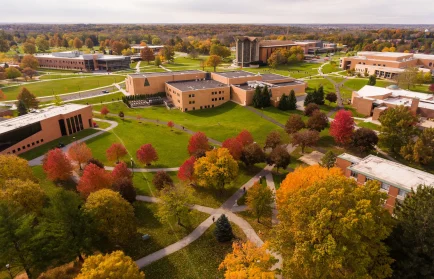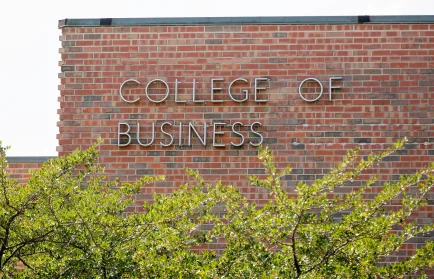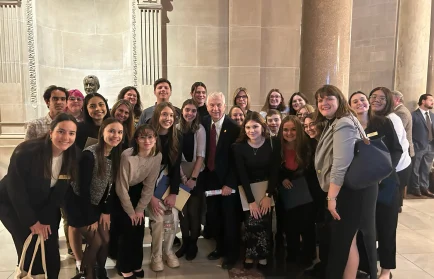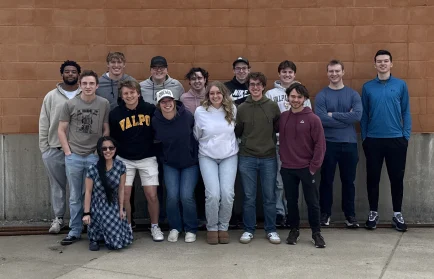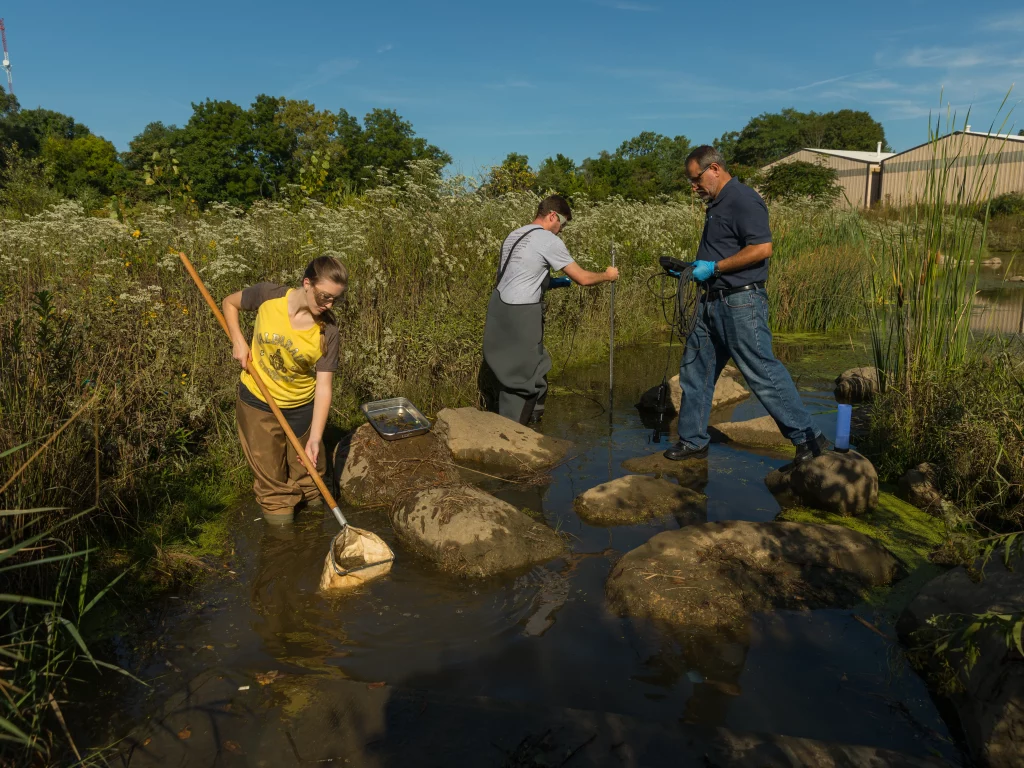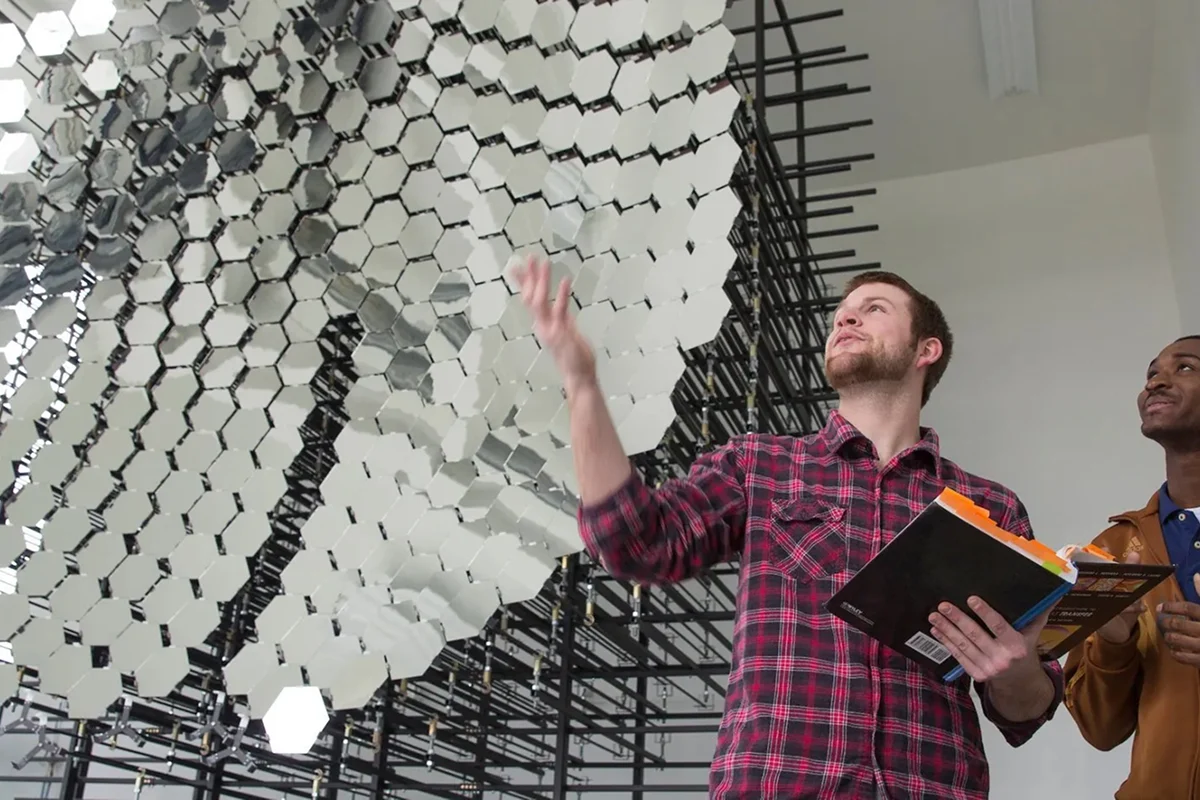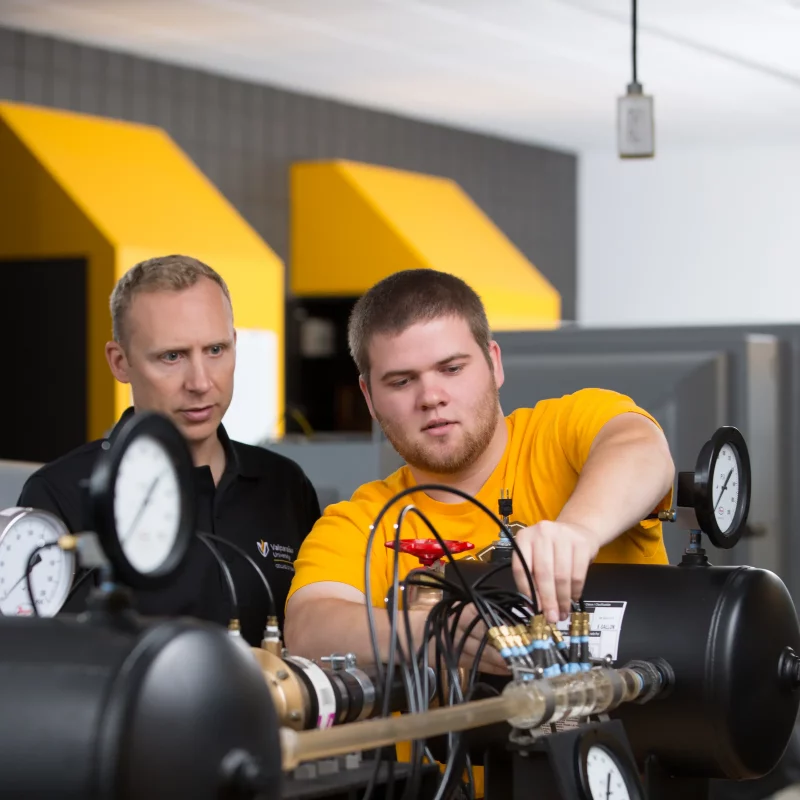Environmental Engineering
Learn to design solutions to improve water and air quality, use resources sustainably, and tackle environmental challenges.
career outcomes
About Our Environmental Engineering Degree
First-year engineering students complete a consistent schedule of courses, including Fundamentals of Engineering and classes in calculus and physics. Across campus, all first-year students also take Valparaiso University Experience (VUE) courses, which enhance critical thinking, problem-solving and communication skills.
To obtain a bachelor of science in environmental engineering, students complete 128 credits of major requirements and electives. Valpo’s curriculum integrates classroom and lab experiences in engineering, chemistry, biology, and soil science. Studies also include mathematics, computer programs, and engineering design, culminating with a senior design project. As part of the Valpo experience, engineering students also explore a variety of interests through liberal arts courses.
| Major Requirements | 128 Credits | |
|---|---|---|
| BIO 215 | Fundamental Microbiology for Engineers | 3 Cr. |
| CHEM 115 | Essentials of Chemistry | 4 Cr. |
| CHEM 116 | Applications of Chemistry in Engineering | 4 Cr. |
| CHEM 221 | Organic Chemistry I | 4 Cr. |
| MATH 132 | Calculus II | 4 Cr. |
| MATH 253 | Calculus III | 4 Cr. |
| MATH 260 | Linear Systems and Matrices | 1 Cr. |
| MATH 270 | Ordinary Differential Equations | 3 Cr. |
| PHYS 141 | Newtonian Physics | 3 Cr. |
| PHYS 141L | Experimental Physics I | 1 Cr. |
| STAT 240 | Statistical Analysis | 3 Cr. |
| GE 100 | Fundamentals of Engineering | 2 Cr. |
| GE 109 | Mechanics – Statics | 3 Cr. |
| GE 311 | Financial Decisions in Engineering | 1.5 Cr. |
| GE 312 | Ethical Decisions in Engineering | 1.5 Cr. |
| CE 151 | Introduction to Computer-Aided Drafting | 1 Cr. |
| CE 213 | Technical and Professional Writing in Civil and Environmental Engineering | 1 Cr. |
| CE 215 | Mechanics of Materials | 3 Cr. |
| CE 281 | Geology for Civil and Environmental Engineers | 3 Cr. |
| CE 334 | Fluid Mechanics | 4 Cr. |
| CE 335 | Hydrology | 3 Cr. |
| CE 351 | Programming and Numerical Methods | 2 Cr. |
| CE 364 | Environmental Engineering I | 4 Cr. |
| CE 365 | Environmental Engineering II | 3 Cr. |
| CE 493 | Senior Design I: Project Planning and Management | 3 Cr. |
| CE 494 | Senior Design II: Project Development and Design | 3 Cr. |
| ENE 210 | Environmental Toxicology and Risk Assessment | 3 Cr. |
| ENE 260 | Environmental Sustainability | 2 Cr. |
| ENE 310 | Chemical Fate and Transport | 3 Cr. |
| ENE 330 | Environmental Soils | 3 Cr. |
| ENE 360 | Environmental Policy and Law | 2 Cr. |
| ENE 450 | Hazardous Waste Management | 3 Cr. |
| ME 270 | Thermodynamics I | 3 Cr. |
| MATH 131 | Calculus I | 4 Cr. |
| Environmental Engineering Electives | 6 Cr. |
|---|
A minor in environmental engineering is available to students majoring in bioengineering, civil, computer, electrical, or mechanical engineering, biology, chemistry, or environmental science, and to Integrated Business and Engineering students upon successful petitioning of the Civil and Environmental Engineering faculty. A minimum of 18 credit hours in chemistry, civil, and environmental engineering is required. The civil and environmental engineering department chair must approve the plan of study.
Environmental engineers play a critical role in protecting our environment for the future. Top employers in the field include engineering firms, consultancies, and government agencies. This important profession is expected to grow 7% by 2033, according to the U.S. Bureau of Labor Statistics. Environmental engineers earned a median annual pay of $100,090 in 2023.
Careers in Environmental Engineering:
- Science, technology, engineering, and mathematics (STEM) educator
- Conservation agent
- Corporate policy advisor
- Environmental consultant
- Environmental engineer
- Environmental lab scientist
- Health safety manager
- Natural resources manager
- Public policy analyst
- Regulatory compliance officer
college of Engineering
Program Rankings & Highlights
Student Spotlight: Daniel Owens
“I always wanted to pick something where I felt like I was having a positive impact during my nine-to-five, with the environment being a big focus. I’m fortunate this line of work allows me to actually see tangible improvements in the environment at the end of a project.”
college of ENGINEERING
Meet Our Faculty
Our professors are educators. And they’re also our students’ biggest advocates. Some of the finest engineering faculty in the field can be found at Valpo. These accomplished and dedicated individuals have earned numerous accolades for teaching and research on topics such as ethics and emerging technology, solar energy, soil analysis after earthquakes, jet technology, and more.
COLLEGE OF ENGINEERING
